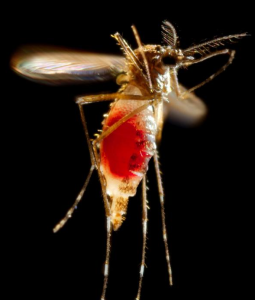The World Health Organization (WHO) acknowledges that the current Zika virus epidemic has raised questions as to whether transmission can also occur during breastfeeding.

Public domain image/ Gonneke
Today, the UN health agency has provided interim recommendations to guide breastfeeding practices in the context of Zika virus.
WHO recommends that infants start breastfeeding within one hour of birth, are exclusively breastfed for six months, with timely introduction of adequate, safe and properly fed complementary foods while continuing breastfeeding for up to two years of age or beyond and this remains valid in the current context of Zika virus transmission.
Mothers with suspected, probable or confirmed Zika virus infection, during pregnancy or postnatally, should receive skilled support from health care workers to initiate and sustain breastfeeding, like all other mothers. Likewise, mothers and families of infants with suspected, probable or confirmed Zika virus infection should receive skilled support to adequately breastfeed their infants.

The rationale the WHO gives for the recommendations include:
- Breastfeeding has significant benefits for mothers and children, in low- and middle-income countries as well as high-income countries. Breastfeeding contributes towards sustainable development goals related to maternal and child health, nutrition, education, poverty reduction and economic growth.
- Zika virus RNA has been detected in breast milk from two mothers with confirmed Zika virus infection, but no replicative virus was identified in cell culture. The breast milk samples where Zika virus RNA was found were collected at a time when the mothers were RT-PCR positive for Zika virus in serum samples and had clinical disease.
- There are currently no documented reports of Zika virus being transmitted to infants through breastfeeding.
- The frequency of virus detection, virus kinetics and size of viral load of Zika virus in breast milk is unknown.
- In countries with ongoing transmission of Zika virus, no adverse neurologic outcomes or severe diseases have been reported to date from infants with postnatally acquired Zika infection. Any change to this situation should be carefully monitored.
- In light of available evidence, the benefits of breastfeeding for the infant and mother outweigh any potential risk of Zika virus transmission through breast milk.
WHO does note that further research is required in this area to include frequency and persistence of Zika virus in breast milk after symptomatic and asymptomatic infection among lactating women; transmissibility of Zika virus through breast milk; incidence of symptomatic and asymptomatic Zika virus infection in newborns from infected mothers and more.
Related:


One thought on “Zika virus and breastfeeding: WHO recommendations”